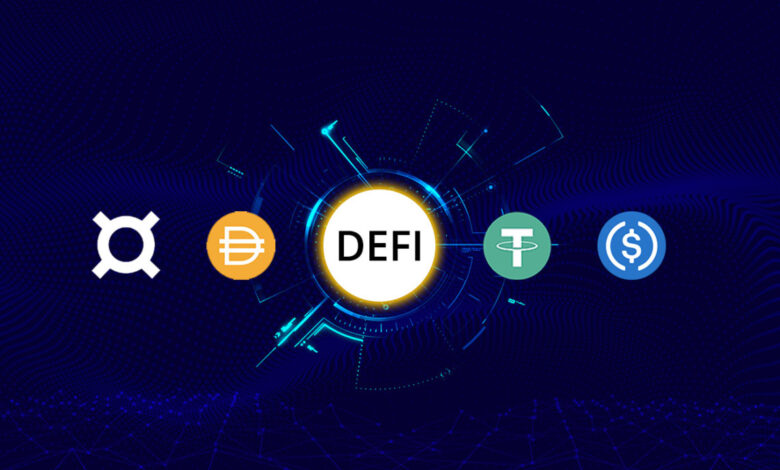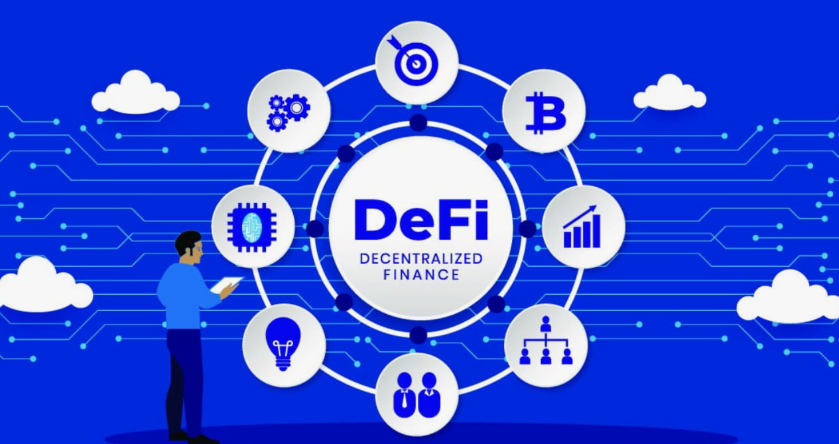Germany’s 2025 DeFi Regulations Set to Reshape Crypto

Germany’s regulatory landscape for decentralised finance is undergoing significant transformation as the country navigates the implementation of comprehensive Germany DeFi regulations. The third quarter of 2025 promises to bring pivotal regulatory developments that will reshape how decentralised financial services operate within German jurisdiction and across the broader European Union.
Current Regulatory Foundation
The German Federal Financial Supervisory Authority (BaFin) has established itself as a leading voice in European Germany DeFi regulation, building upon years of cryptocurrency oversight experience. The Federal Ministry of Finance (BMF) published an updated circular on March 6, 2025, outlining key changes in the income tax treatment of crypto assets, signalling Germany’s commitment to creating a comprehensive regulatory framework for digital assets and decentralised protocols.
Germany’s approach to DeFi regulation has been characterised by methodical evaluation and stakeholder engagement. BaFin officials have consistently emphasised the need for balanced regulation that protects consumers while fostering innovation in the decentralised finance sector. This measured approach has positioned Germany as a thought leader in establishing practical regulatory frameworks that address the unique challenges presented by DeFi protocols.
The regulatory foundation established through existing cryptocurrency legislation provides a solid base for expanded DeFi oversight. However, Crypto businesses are required to register with BaFin, establish a local presence in Germany, hold minimum capital (€125,000 to €350,000), and comply with AML and KYC regulations, creating precedents that will likely influence future DeFi regulatory requirements.
MiCA Implementation and German Adaptation
The Markets in Crypto-Assets Regulation (MiCA) went into effect on Dec. 30, 2024, establishing the foundational regulatory framework for crypto assets across the European Union. However, Germany’s implementation of MiCA provisions has been comprehensive, with German authorities working to ensure seamless integration between European regulations and national financial oversight mechanisms.
The German adaptation of MiCA has focused on clarifying how decentralized protocols fit within existing regulatory structures. From 30 December 2024, only crypto-asset service providers (CASPs), authorised before carrying on their activity, may provide crypto-asset services, creating important implications for DeFi platforms operating within German jurisdiction.
German regulators have recognised that traditional MiCA provisions may not adequately address the unique characteristics of decentralised finance protocols. This recognition has led to intensive work on supplementary regulatory frameworks specifically designed to govern Germany DeFi regulation while maintaining compliance with broader European regulatory objectives.
The implementation process has involved extensive consultation with industry stakeholders, academic institutions, and international regulatory bodies. This collaborative approach aims to ensure that emerging DeFi regulations are both technically feasible and economically viable for market participants.
Anticipated Q3 2025 Regulatory Developments
The third quarter of 2025 is expected to witness several significant regulatory announcements that will define Germany’s DeFi regulatory landscape for years to come. Industry insiders anticipate that BaFin will release comprehensive guidance documents addressing specific DeFi use cases, including decentralized lending protocols, automated market makers, and yield farming mechanisms.
German authorities are expected to announce detailed licensing requirements for DeFi protocol operators, particularly those managing significant value or serving German residents. These requirements will likely include operational resilience standards, consumer protection measures, and enhanced transparency obligations for protocol governance mechanisms.

The regulatory developments in Q3 are also expected to address cross-border DeFi operations, establishing clear frameworks for how international DeFi protocols can legally serve German users while maintaining compliance with local regulations. This international dimension is crucial given the borderless nature of decentralised finance applications.
However, risk management requirements for DeFi protocols are anticipated to be a primary focus of Q3 regulatory announcements. Germany DeFi regulations are likely to introduce mandatory risk assessment procedures, stress testing requirements, and operational continuity standards that DeFi platforms must implement to maintain regulatory compliance.
Smart Contract Governance and Compliance
However, German regulatory authorities have been working intensively on frameworks. Innovative contract governance recognises that traditional regulatory approaches may not adequately address the autonomous nature of DeFi protocols. The Q3 regulatory package is expected to introduce innovative compliance mechanisms. Those who work within the decentralised governance structures common in DeFi ecosystems.
The regulatory approach to smart contract auditing. Security standards are likely to be formalised during Q3. With mandatory security assessment requirements for DeFi protocols above specific threshold values. These standards will probably include regular security audits, bug bounty programmes, and formal verification processes for critical innovative contract functions.
Governance token regulation represents another area where significant developments are expected in Q3. German authorities are working on frameworks that balance. The legitimate governance functions of these tokens include investor protection requirements and anti-money laundering obligations.
The regulatory treatment of decentralised autonomous organisations (DAOs) operating in Germany DeFi regulations are expected to be clarified through Q3 announcements. This clarification will address questions about legal liability, operational oversight, and compliance responsibilities for decentralised governance structures.
Consumer Protection and Market Integrity
Consumer protection measures tailored explicitly for DeFi environments are expected to be a cornerstone of Q3 regulatory developments. German authorities have identified unique risks associated with decentralised finance, including smart contract vulnerabilities. Impermanent loss and liquidity risks that traditional financial regulation does not adequately address.
The regulatory framework is likely to include mandatory disclosure. Requirements for DeFi protocols, ensuring that users understand the risks associated with specific financial products and services. These disclosures will probably cover technical risks, economic risks, and governance risks inherent in decentralised monetary systems.
Market integrity measures for DeFi platforms are expected to include anti-manipulation provisions, fair access requirements, and transparency standards for automated market-making algorithms. However, measures aim to ensure that decentralised markets operate fairly and efficiently while maintaining the innovation benefits of DeFi technology.
German regulators are also expected to introduce specific provisions addressing this. The intersection between DeFi and traditional finance ensures. That decentralised protocols interfacing with traditional financial systems maintain appropriate compliance standards and consumer protections.
Future DeFi Regulatory Landscape
Europe plans to regulate DeFi as early as 2026, strengthening. It’s control over the crypto ecosystem through post-MiCA adjustments, indicating that Q3 2025 developments represent the beginning of ongoing regulatory evolution rather than final regulatory positions. German authorities are positioning themselves to lead this European regulatory development process.
The regulatory framework emerging in Q3 is expected to establish Germany as a preferred jurisdiction for compliant DeFi innovation. By creating clear, practical regulatory pathways for DeFi protocols, German authorities aim to attract legitimate DeFi projects while maintaining robust consumer protection and market integrity standards.
International coordination with other European regulators is expected to intensify following Q3 regulatory announcements, as Germany seeks to harmonise its DeFi approach with broader European objectives while maintaining its position as a leading financial centre for blockchain innovation.
The long-term vision emerging from German regulatory development suggests. A future where DeFi protocols can operate with regulatory certainty while maintaining their innovative characteristics. This balanced approach aims to capture the benefits of decentralised finance. While addressing legitimate regulatory concerns about consumer protection and systemic risk.
Industry Implications and Preparation
DeFi protocols are currently operating within German jurisdiction. Should begin preparing for enhanced compliance requirements. Those are likely to emerge from Q3 regulatory announcements. This preparation should include a legal review of existing operations. Implementation of enhanced user protection measures and development of compliance monitoring systems.
Financial institutions considering DeFi integration should monitor Q3 regulatory developments closely. New frameworks may create opportunities for traditional financial. Institutions to engage with DeFi protocols under clear regulatory guidance. This integration potential represents a significant opportunity for both traditional finance and DeFi innovation.
Technology providers serving the DeFi ecosystem should prepare for potential. New technical requirements related to compliance monitoring. However, User protection and regulatory reporting. These requirements may create new market opportunities for compliant DeFi infrastructure providers.
